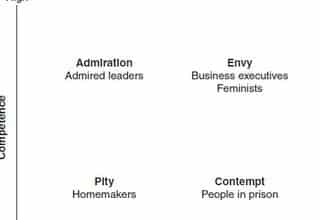After an Op-Ed in the New York Times, there’s been an ongoing political debate about the courage of an anonymous mutineer. On both the left and right, I hear the same diatribe. One side says, “Yes”—dissent is important in any form, and this individual is putting everything on the line to let the country know that they and their band of resisters are looking out for all of us. The other side says, “No”—if someone really believes it’s as bad as it is, he/she should have the courage to do more than write an authorless article. So my question is this; can you lead behind a veil of anonymity?
It’s not atypical for face-to-face, interpersonal interactions amongst leaders and followers to vary between rare to non-existent. In these cases, the leader is virtually anonymous. Consider the extreme example of the former leader of the Mexican Zapatista revolutionary movement; he successfully led a campaign to improve the quality of life, while cloaked in a ski mask. He was physically present, but his identity was (and remains) anonymous.
Tied to the aforementioned example, a recent study examined whether a person unknown to potential followers could be seen as a leader. Semi-surprisingly, the answer is that it depends. The research found that leaders pursuing group-oriented goals are perceived to demonstrate a greater degree of leadership when they are anonymous. Conversely, unidentified leaders pursuing personal, self-oriented goals are significantly less influential.
The group-oriented leaders (versus personal-oriented) are considered to be more intelligent, show more effectiveness and have more initiative. Displaying a motivation to help the masses without personal benefit is a key characteristic for leaders and is crucial when attempting to build a following. And, as the research show, if people hear/believe this message, they do not care who the “selfless” individual may be; they will happily follow.
I’m not trying to convince anyone to lead from behind a ski mask (metaphorical or otherwise), but I am wary about allowing someone to lead without first knowing 1) who they are, and 2) what they intend to accomplish. What appears to be a purely altruistic objective can lead to immense personal gain for said leader. If I know who he/she is, I can evaluate their track record and determine for myself whether they are worthy of followership. Otherwise, I’m relying on blind faith…and I’m not a fan of blind faith. Instead let’s lean towards trust but verify.








